APRA farewells Deputy Chair Helen Rowell
Helen Rowell’s reflections of her time at APRA are largely the story of the financial services regulator itself. The long-time Deputy Chair first joined APRA over 21 years ago, just a few years after APRA was established. As Helen’s term concludes this month – coincidentally, on the eve of the regulator’s 25th operational year – she paused to reflect on the challenges, achievements and people that helped build APRA.
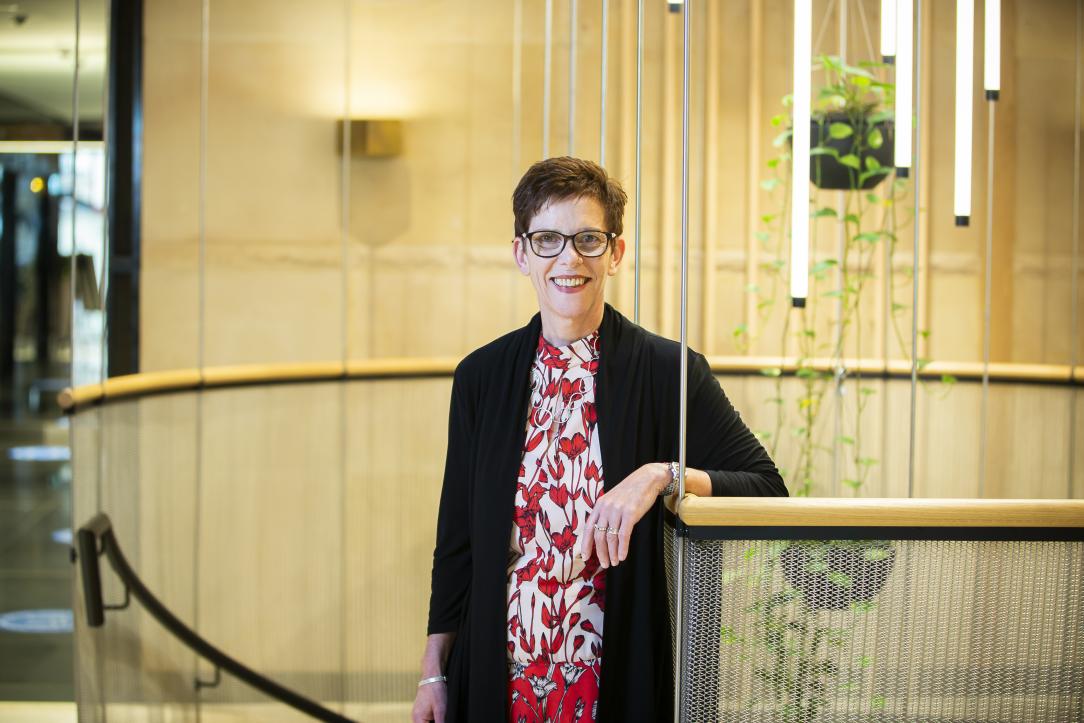
You joined APRA as a general manager in 2002. Many of the roles you held since then largely focused on superannuation and insurance. And then, of course, you joined the APRA Executive Board. Why have you decided to move on?
Having been at APRA for just over 21 years and an Executive Board Member and Deputy Chair for 10 years now, I decided over a year ago that I would not seek a further five-year term. From a good governance perspective, it feels appropriate for APRA to follow the approach to tenure and succession planning that we expect of the entities we regulate. However, it also feels like the right time for me to pursue other challenges and have a bit more flexibility, including to spend more time with my husband who has been retired for a few years now.
You experienced the global financial crisis (GFC), a Royal Commission, a Capability Review and an unsuccessful court action against a major superannuation licensee. It was not all smooth sailing. What has been the biggest test you have experienced personally and professionally during your time at APRA?
Professionally, I think the most challenging experience was the GFC. At that time, I was relatively new to frontline supervision at APRA, having previously held specialist/technical roles. My entity portfolio was a mix of insurers, and regional and foreign bank branches, all of which faced considerable pressures from funding and liquidity stress – given the closure of international wholesale funding markets, reduced capacity for capital and funding support from international parents, exposure to portfolio and/or investment losses, and volatility in asset values.
Teams across APRA worked collectively, in partnership with agencies of the Council of Financial Regulators, government and industry, to effectively navigate through what were very challenging times, which evolved and changed on an almost daily basis over some months. It was a great learning experience and showed the importance of the work done to strengthen capital and liquidity management before the crisis, and of working collaboratively within APRA and across the financial system to share information and develop appropriate responses as the crisis unfolded.
Personally, being a witness at the financial services Royal Commission was also a very challenging experience that I will be unlikely to forget. Obviously, it was important to represent APRA well in an environment of very intense scrutiny and criticism of the industry and its regulators. I was extremely well supported by people across all of APRA to ensure I had the information and resources I needed to prepare and respond to the questions of the Commission, both in the lead up to, during, and after the hearing. Again, it was a great learning experience for me and provided useful insights for evolving APRA’s approach to regulation and supervision.
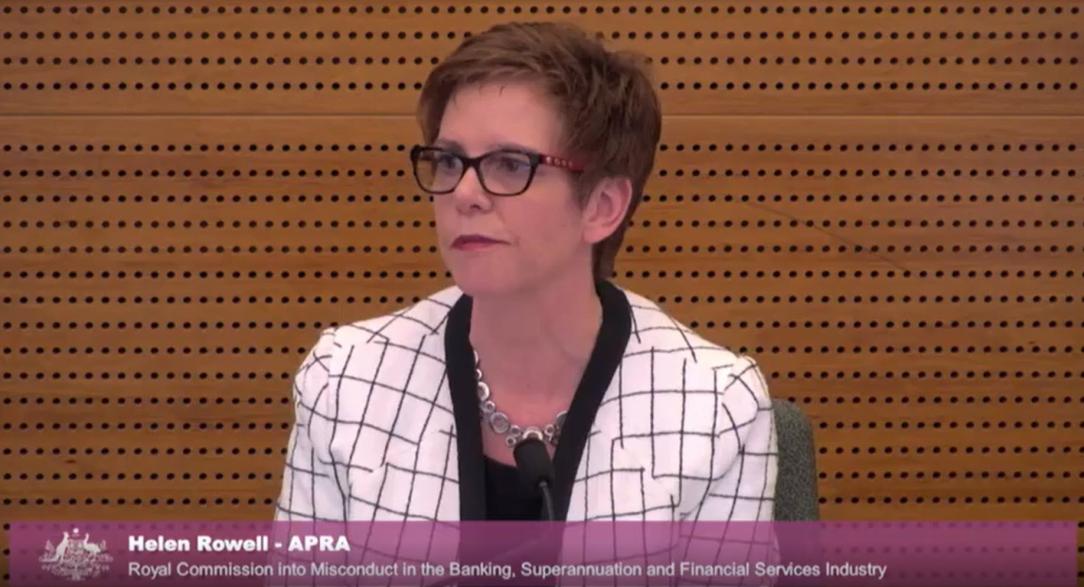
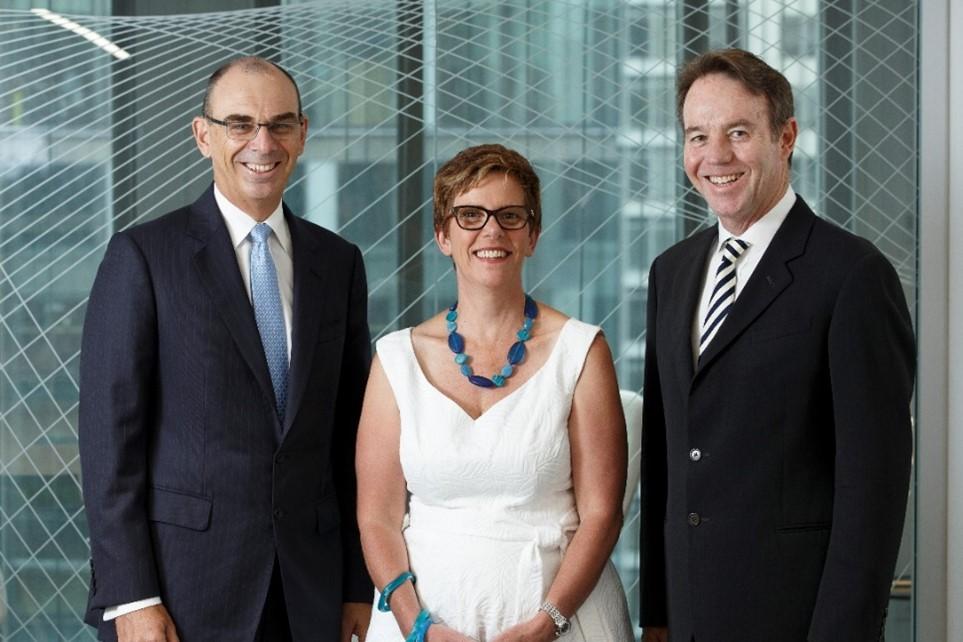
You have been involved in many milestones at APRA. Reflecting on your achievements, which have you been most proud of?
There are many entity issues and engagements that I have been involved in over the last 21 years that have led to material improvements in entity practices, and prudential and consumer outcomes. There have also been several enhancements to the prudential framework over that time in which I have had a material role, including, for example, the major insurance capital reforms under the Life and General Insurance Capital framework introduced in 2013. However, perhaps it is the following three of which I am particularly proud.
First, the introduction and implementation of prudential standards for superannuation from 2013. This was a significant step, enabling APRA to lift standards of practice across the superannuation industry towards what is more appropriate for financial services entities that were increasing in size and complexity, and which have obligations to deliver sound outcomes for members over the long term. It is pleasing to see how far the superannuation industry has evolved its practices over the last 10 years. Although there will always remain room for further improvement in practices across the industry, it is important to recognise that significant progress has been made.
Secondly, the Superannuation Data Transformation project and creation and publication of the MySuper and Choice Heatmaps reports was a further significant step. Leveraging more granular data and presenting information on investment performance and fees in a transparent way has materially improved the outcomes for millions of superannuation members, and supported all members to choose lower-fee or better performing funds.
It has also provided impetus and insights for APRA’s wider data strategy and transformation project that will improve insights and outcomes across all APRA-regulated sectors. It is very satisfying to have led this work, and to see the broad impact that it has had, and will continue to have, for the benefit of many stakeholders but particularly the Australian community.
Finally, from an internal perspective, the evolution of APRA’s people framework and practices, including recruitment approach, leadership capability frameworks, training and development programs, and our inclusion and diversity strategy is also something which I am very proud to have led over many years. These have all contributed significantly to building breadth and depth of capability at all levels of the organisation and across a range of disciplines and risk areas – positioning APRA as a credible and highly regarded employer and regulator.
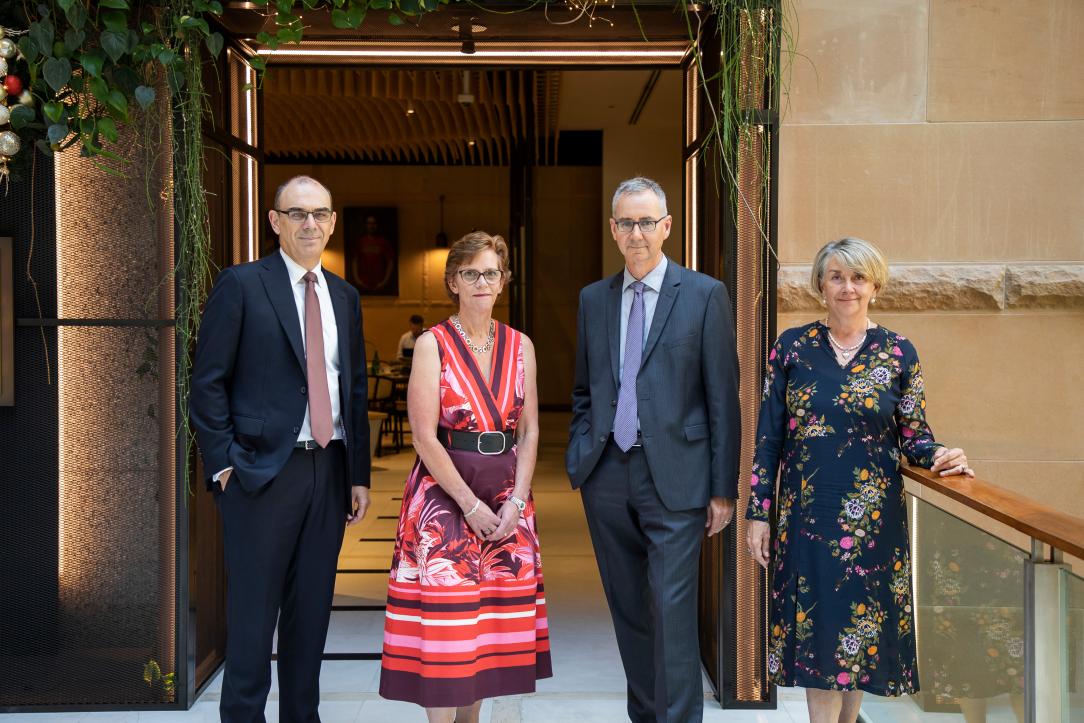
On 1 July, APRA celebrates its 25th anniversary. From your rare vantage point, what is the biggest difference between the financial services industry in 2023 compared to when you first began at APRA?
There have been many industry changes over that period, reflecting the evolving size and complexity of the financial system and the entities within it; changes in business models and structures, and the evolution in the external environment, particularly technological developments and other external risks and opportunities. The increase in connectivity between entities across the system, both domestically and internationally, as entities use a wider set of partners and service providers to meet consumer expectations has increased the complexity of the risk environment within which entities operate and the speed with which issues can spread (as we have seen recently with the banking collapses in the US).
Another key change would be the significant evolution of governance and risk management frameworks and approaches adopted by financial sector entities, with an increasing recognition of the need to adequately manage both financial and non-financial risks. That has been coupled with a much stronger focus by many entities on better meeting the needs and expectations of consumers, as well as shareholders and other stakeholders. This reflects that putting customers at the centre of business strategy, and having business practices, accountabilities and incentives that align with that customer focus, is more likely to deliver sustainable outcomes for both the business itself and its customers over the long term.
You have represented APRA on various committees, including the International Association of Insurance Supervisors Executive Committee (IAIS). The IAIS released a report on diversity, equity and inclusion (DEI). As a DEI advocate, explain how entities could benefit from embedding stronger diversity and inclusion practices.
DEI is particularly relevant to governance, culture and conduct. The goal of DEI efforts is to have diversity in the workforce at all levels and enable everyone to feel that they belong and can express different concepts and bring their whole selves to work. These objectives have direct links to how effectively the critical functions of corporate governance and risk management function within an organisation and are inextricably linked to culture, which impacts decisions, behaviours and practices across organisations.
It is widely acknowledged that better outcomes – for an organisation and its customers – result from bringing in a broader range of perspectives. When people have different backgrounds and experiences, they are more likely to be able to identify a broader range of risks and opportunities as they consider business objectives and strategies. Diverse teams are also more likely to solve problems and create new ideas than homogenous ones, as the different perspectives they provide allow them to explore more options, which leads to better problem-solving, and ultimately innovation.
The benefits of diversity cannot be reaped if directors, executives and other staff do not feel comfortable to contribute to the conversation (such as when their view is different from that of the majority) or that their view will be heard and considered. Creating an inclusive culture that enables this is critical to harness the benefits of diversity.
At heart, this focus on DEI extends APRA’s longstanding view of the need for broad perspectives on boards. By bringing together people from different backgrounds, broader perspectives can be shared, leading to a wider view of potential risks and opportunities. Businesses can attract and keep skilled employees by creating an inclusive and welcoming work culture, while a wider range of perspectives can help companies better understand and meet the needs of their existing customer base or tap into new markets.

The recent collapse of SVB and Credit Suisse raised concerns about the speed with which money can be withdrawn from an institution if consumer confidence wavers. Is that the next big issue facing financial regulators, or is there another looming challenge you are more concerned about?
These events were a stark reminder that we are in an age in which social media significantly increases the speed with which bank runs may now occur. They raised fears of contagion risk undermining stability in Australia and signalled that an organisation’s distress may have systemic consequences; even if it is not extremely large, highly connected to other financial counterparties or involved in critical financial services. While the uncertainty created by these events is still playing out, APRA and peer regulators have already begun examining what happened and the lessons learnt.
Undoubtedly, I think one of the biggest issues currently facing financial regulators and entities – indeed, almost every sector globally – is the evolving face, frequency and reach of cyberattacks. We have now seen a number of these attacks play out across the Australian financial system, and APRA’s regulated entities should expect to experience significant cyber security incidents.
By the end of this year, APRA will have completed an expansive study of the cyber resilience capabilities of more than 300 entities. Initial findings show more needs to be done. While defences and controls are important, investing in detection and response capability is equally as important. Beyond capabilities, entities need to test their preparedness and work collaboratively with peers, researchers and government to raise the bar.
And if we look more medium-term, then climate risks and the need to adapt and respond is a significant, looming challenge. In 2019, APRA stated that climate risks “are material, foreseeable and actionable now”. Four years on from that statement, the relevance of climate risk to the financial sector has only grown. In that time, we have seen significant changes at a global level; climate risk disclosure has gone from a niche discussion area to the publishing of International Financial Reporting Standards, expected later this month.
For APRA, we have gone from speaking about climate risk to issuing guidance, delivering an assessment of climate vulnerability in the banking sector, garnering insights from entities, and developing the soon-to-commence “Insurance in a Changing Climate” initiative.
What are your short-term plans when your tenure ends in June 2023?
My immediate plan is to take at least a three-month break to relax, spend time with family and travel. We have a trip to Europe planned for August, which includes visiting my son and his wife in Scotland and enjoying a cruise along the coast of Norway. We also have a rural property that I am looking forward to being able to spend more time at.
Later in the year, I will turn my mind to what next, as I remain passionate about contributing to improved health and financial well-being for the Australian community and advancing diversity and inclusion. So, I look forward to finding ways to continue to contribute to those objectives.
What will you miss the most about APRA?
First and foremost, I will miss the APRA team. I have had the privilege of working with so many extremely capable and committed people within APRA over the last 21 years. They have enabled APRA to continue to lift industry practices and deliver improved outcomes for the Australian community that we are charged with protecting. I hope to keep in touch with many of my colleagues, but I realise it will not quite be the same as interacting with them on a daily basis.
Secondly, I will miss the regular interaction with so many stakeholders across industry and Government. One of the aspects of my role that I have enjoyed most has been meeting regularly with boards, executives and others to share insights, exchange views and – in many cases – work together to lift industry practices and outcomes for consumers. Again, I hope to continue to connect and be engaged with many of these industry practitioners as I move into this next phase of my career.
On 17 May 2023, Helen Rowell delivered a final keynote address at the Governance and Risk Management Forum. Watch that presentation here.
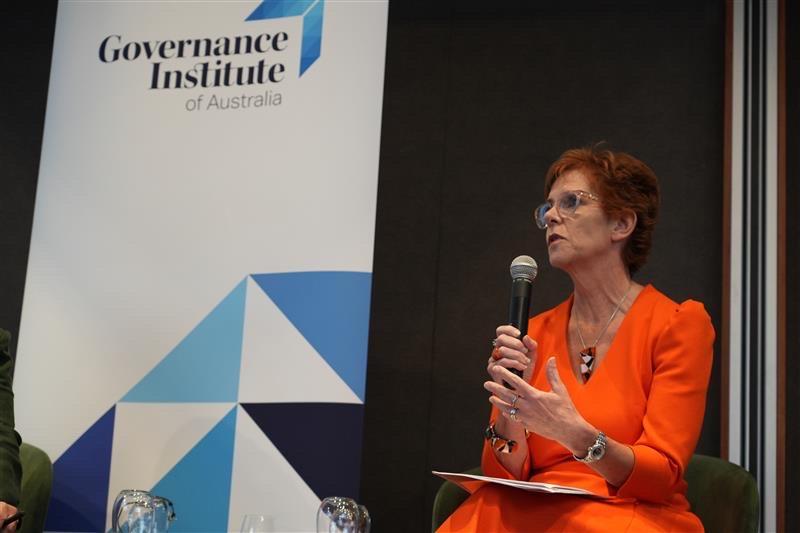
Media enquiries
Contact APRA Media Unit, on +61 2 9210 3636
All other enquiries
For more information contact APRA on 1300 558 849.
The Australian Prudential Regulation Authority (APRA) is the prudential regulator of the financial services industry. It oversees banks, mutuals, general insurance and reinsurance companies, life insurance, private health insurers, friendly societies, and most members of the superannuation industry. APRA currently supervises institutions holding $9.8 trillion in assets for Australian depositors, policyholders and superannuation fund members.